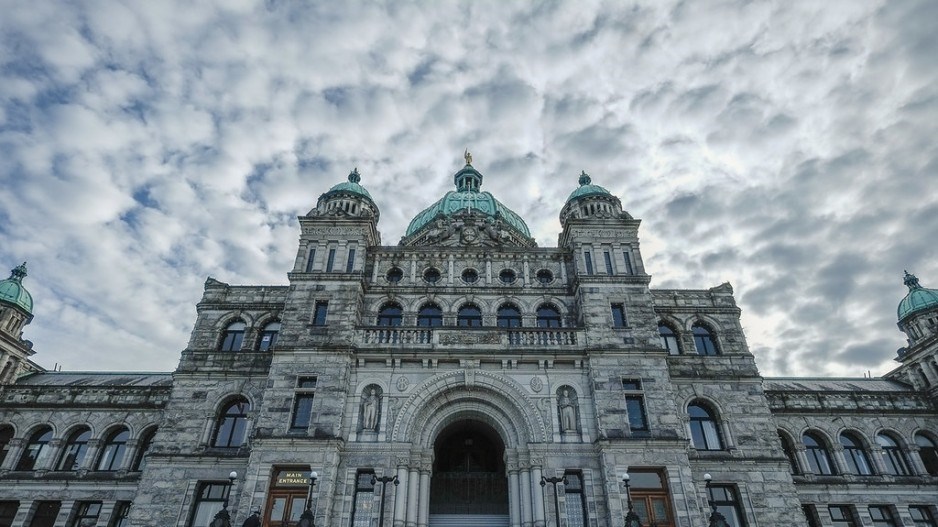British Columbians celebrated the summer holiday at a complex time.
Indicators such as unemployment and credit ratings remain satisfactory, but the province faces uncertainty on topics like housing, public safety and inflation. COVID-19 appears to be a thing of the past, and residents remain satisfied with the way provincial authorities managed the pandemic.
Research Co. and Glacier Media conduct an annual survey to review the sentiments of British Columbians on the province, its major politicians and its future. In 2023, we continue to see a remarkable allegiance to Canada, but a reduction on how many residents identify with our neighbours to the south.
More than three in five respondents to our survey (62 per cent, down one point since our previous survey in 2022) say they consider themselves “Canadians first, British Columbias second,” while just 21 per cent (up one point) claim to be “British Columbians first, Canadians second.” The notion of putting province before country is more prevalent among those aged 35 to 54 (26 per cent) and those who reside in Southern B.C. (27 per cent), but nowhere near the levels that have been observed historically in Quebec or Alberta.
There is little movement on two other indicators. Only 20 per cent of British Columbians (up one point) believe we would be better off as a country, and four in five (80 per cent, down two points) claim to be very proud of the province that they live in.
There is a noticeable drop in the proportion of British Columbians who think they have more in common with the people of Seattle and Portland than with those in Toronto or Montreal, from 62 per cent in 2022 to 58 per cent in 2023. Almost three in five (57 per cent, down two points) also think the views of British Columbians are different from the rest of Canada.
The future is as cloudy for some as it was in 2022. While 73 per cent of the province’s residents (up one point) believe they will stay in B.C. for the rest of their life, only 50 per cent (unchanged) believe their children will reside in the province.
Young adults are the key group to analyze. More than three in 10 residents aged 18 to 34 (31 per cent, down one point) are not confident about staying in the province for the rest of their lives, and 25 per cent (unchanged) do not think there is a future in this province for their children.
We added a new name to the question about the best and worst premiers that the province has had since August 1986, after David Eby officially took over as head of government in November of last year. So far, perceptions on the current premier are ambiguous: Four per cent of British Columbians think he has been the best, and four per cent feel he has been the worst.
For three in 10 British Columbians (30 per cent, unchanged), John Horgan has been the best recent head of government. About a third (32 per cent, down seven points) are undecided and no other individual reaches double digits. Gordon Campbell (eight per cent, up one point), Christy Clark (seven per cent, unchanged) and Mike Harcourt (six per cent, unchanged) round up the top four.
Horgan is boosted by the 33 per cent of women and 34 per cent of British Columbians aged 55 and over who regard him as the best recent premier. It is not surprising to see Horgan doing well in Metro Vancouver (31 per cent) and Vancouver Island (29 per cent), but his numbers are impressive in the Fraser Valley (30 per cent). This is an area of the province that used to be dominated by BC Liberal politicians, who recently have had trouble remaining electable, provincially and municipally.
While 60 per cent of British Columbians who voted for the BC New Democratic Party (NDP) in 2020 regard Horgan as the best recent premier, those who cast ballots for the BC Liberals are divided: 18 per cent choose Campbell, 17 per cent select Clark and 11 per cent pick Horgan.
The situation is different when residents of the province ponder the worst recent premier. Just under one in five (19 per cent, unchanged) select Christy Clark, followed by Campbell (13 per cent, up three points), Glen Clark (eight per cent, unchanged) and Bill Vander Zalm (seven per cent, down one point). We also have more undecideds than in the previous question (35 per cent, down one point).
One area is particularly scathing in its assessment of the last two BC Liberal premiers. In Vancouver Island, more than two in five residents brand Campbell (23 per cent) or Christy Clark (20 per cent) as the worst heads of government in recent memory. BC Liberal voters in 2020 go back to the 1990s to find the premier the dislike the most (Glen Clark, at 16 per cent), with Horgan and Eby tied for second place at 11 per cent.
Mario Canseco is president of Research Co.
Results are based on an online study conducted from July 29-August 1 among 800 adults in B.C. The data has been statistically weighted according to Canadian census figures for age, gender and region in B.C. The margin of error is plus or minus 3.5 percentage points, 19 times out of 20.




